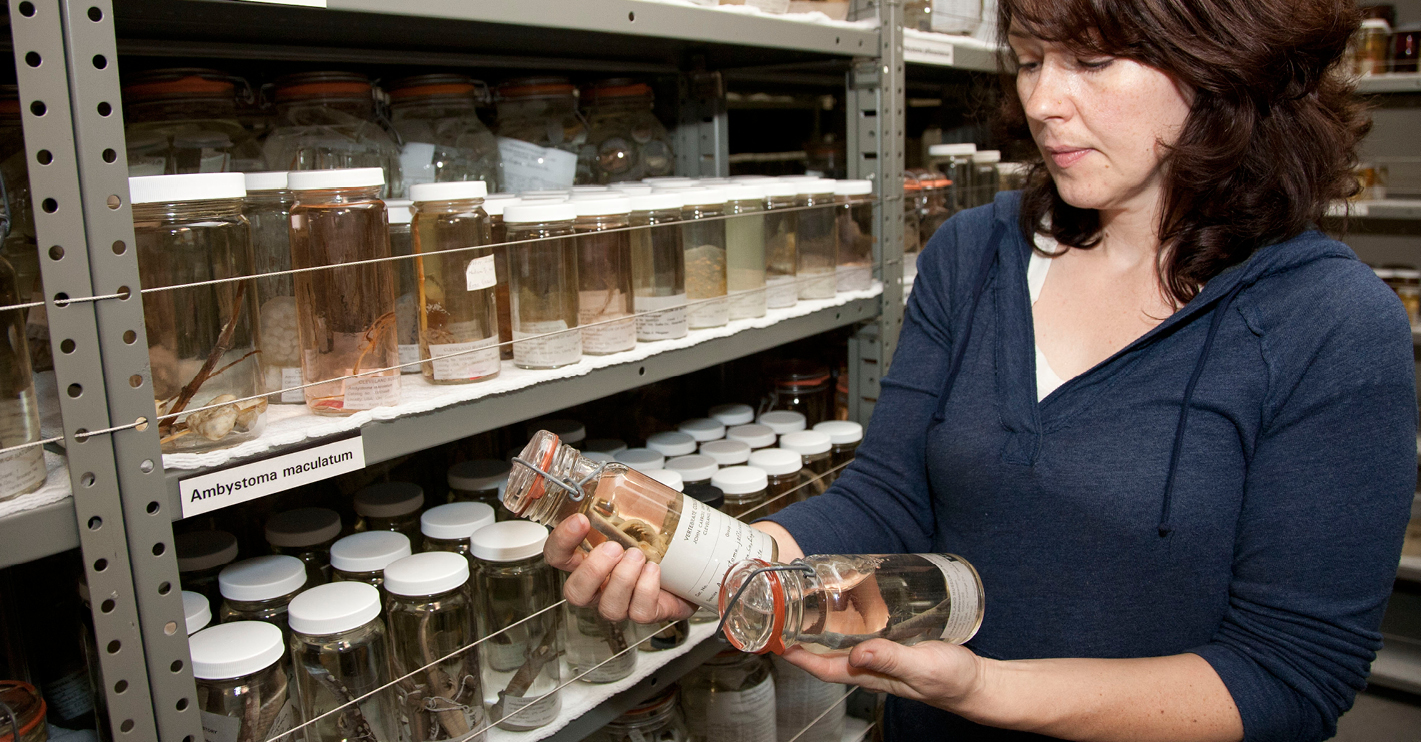 Assistant Curator of Vertebrate Zoology
Assistant Curator of Vertebrate Zoology
Adjunct Faculty, Department of Chemistry, Ursuline College
Roberta Muehlheim has general expertise in the mammals, reptiles, and fishes of Northeast Ohio, with a primary research focus on amphibian ecology and disease. Muehlheim is interested in the environmental processes that influence amphibian populations and has studied the water chemistry of breeding pools and its effects on breeding success.
Her interest in amphibian disease began in 2001 after the near simultaneous deaths of six salamanders being raised in captivity from an unknown and devastating disease. Over the next decade, she persisted in investigating what had caused the disease in the captive salamanders. New techniques developed for extracting viral DNA from formalin-fixed specimens was pivotal in the diagnosis of ranavirus in the captive salamanders and would be the earliest record of the pathogen in Ohio, which was not thought to be present in Ohio. Analyses of specimens collected in the field also confirmed the presence of the disease and may help explain declines in amphibian populations in Northeast Ohio.
Muehlheim has been instrumental in starting a Museum research program studying ranavirus in Northeast Ohio. This disease has been found in amphibian populations on five continents and is just one of many threats to amphibian diversity and survival. Muehlheim will begin research that will help explain the role environmental factors play in driving disease events resulting from ranavirus infection. Environmental disturbances may suppress the immune system making individuals more susceptible to disease and more likely to die as a result.
Additionally, knowing that the virus has been active within salamander populations in the area for at least a decade and a half, she would like to use the Museum collection to determine how long the virus has been present in Ohio and do comparative analyses at affected sites to assess the impact on biodiversity over time. Her work will provide useful information for the conservation of the region’s frogs and salamanders, whose presence is a measure of ecological health.
In addition to her research, Muehlheim is responsible for the curation of the vertebrate research collection which involves maintenance of a “wet” collection (specimens preserved in alcohol), an osteology collection, and a skins collection and all associated databases. New specimens must be identified, catalogued, and prepared and all corresponding information recorded electronically.
Contact:
[email protected]; 216-231-4600 x3388